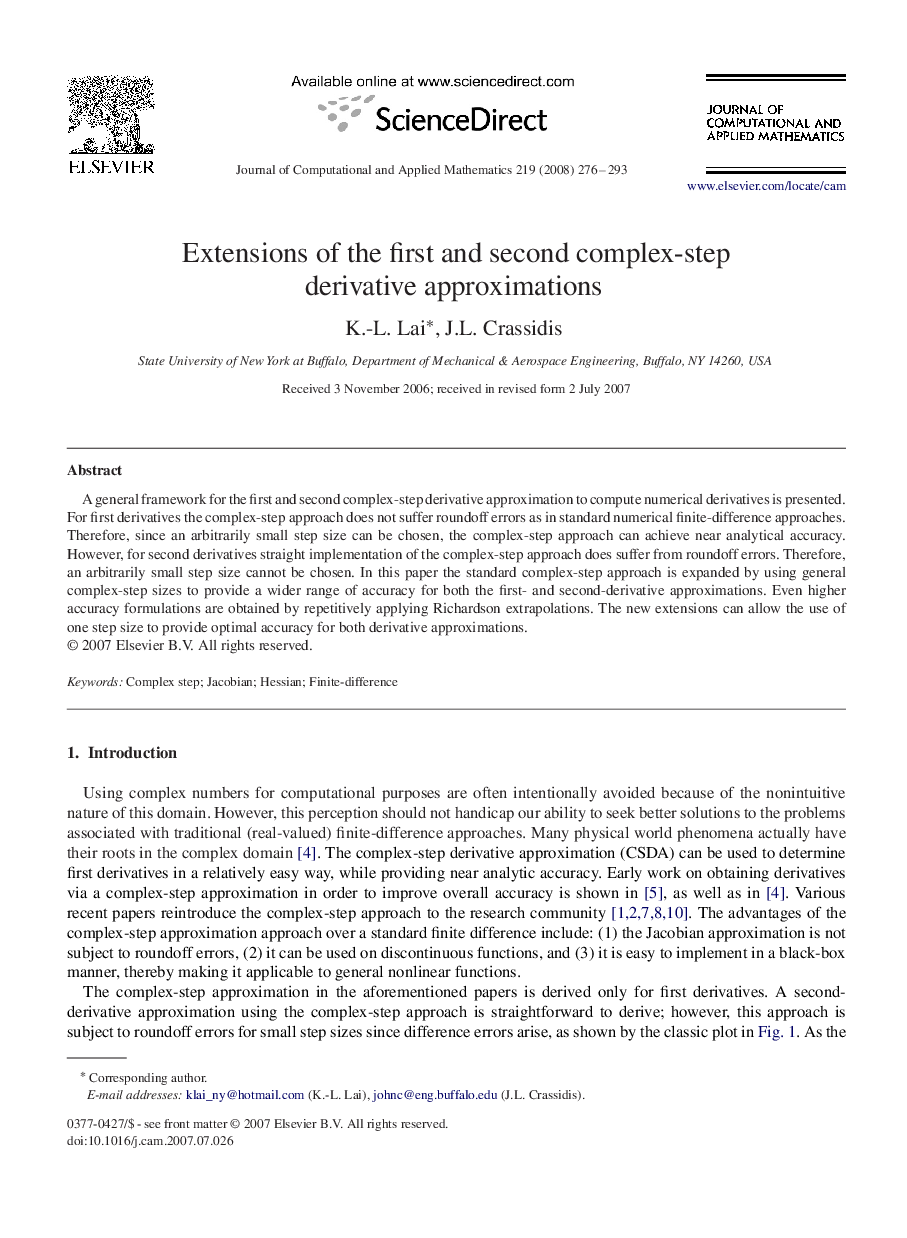| Article ID | Journal | Published Year | Pages | File Type |
|---|---|---|---|---|
| 4641626 | Journal of Computational and Applied Mathematics | 2008 | 18 Pages |
A general framework for the first and second complex-step derivative approximation to compute numerical derivatives is presented. For first derivatives the complex-step approach does not suffer roundoff errors as in standard numerical finite-difference approaches. Therefore, since an arbitrarily small step size can be chosen, the complex-step approach can achieve near analytical accuracy. However, for second derivatives straight implementation of the complex-step approach does suffer from roundoff errors. Therefore, an arbitrarily small step size cannot be chosen. In this paper the standard complex-step approach is expanded by using general complex-step sizes to provide a wider range of accuracy for both the first- and second-derivative approximations. Even higher accuracy formulations are obtained by repetitively applying Richardson extrapolations. The new extensions can allow the use of one step size to provide optimal accuracy for both derivative approximations.
